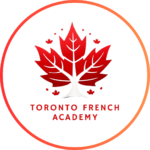🇫🇷 How Long Does It Take to Reach B2 Level in French?
If you’ve started learning French, chances are you’ve already asked yourself:
“How long to reach B2 level in French?”
It’s one of the most common questions among learners—especially those preparing for exams like TEF Canada, DELF B2, or university admissions in French-speaking regions.
The truth? It depends. But don’t worry — this guide breaks everything down for you. Whether you’re learning for immigration, studies, or career growth, we’ll help you estimate how long to reach B2 level in French and give you practical steps to get there efficiently.
🧭 What Does B2 Level Mean?
Before you worry about how long to reach B2 level in French, let’s first understand what B2 actually represents.
The CEFR (Common European Framework of Reference for Languages) classifies language proficiency from A1 (beginner) to C2 (native-like fluency).
Here’s where B2 fits in:
| CEFR Level | Category | Description |
|---|---|---|
| A1 | Beginner | Basic phrases and introductions |
| A2 | Elementary | Simple interactions |
| B1 | Intermediate | Can handle daily communication |
| B2 | Upper-Intermediate | Can discuss complex ideas, understand native speech, and write clearly |
| C1 | Advanced | Fluent and spontaneous |
| C2 | Mastery | Near-native command |
So, B2 is the point where you become independent in French — you can:
Express opinions clearly,
Handle professional discussions,
Understand media and movies,
And write essays or reports with minimal errors.
For many learners (especially immigration and TEF candidates), B2 is the golden goal.
🌍 The Real-Life Impact of Reaching B2 in French
Reaching B2 level in French isn’t just about passing a test—it’s about gaining access to a whole new world 🌎. At this level, you can study in French-speaking universities, apply for bilingual positions, travel without language barriers, and even build lasting relationships across cultures. Many learners describe reaching B2 as the point when “French finally starts to feel natural.” Everyday conversations become fluid, and you begin thinking in French without translating back to your native language.
💼 B2 Level: A Career Game-Changer
From a professional perspective, how long to reach B2 level in French isn’t just a matter of curiosity—it’s a smart investment question. In Canada, France, Belgium, and several African countries, bilingual professionals earn significantly higher salaries and enjoy more career mobility. Reaching B2 can open doors in international companies, NGOs, diplomacy, tourism, education, and even technology sectors where global collaboration is key. Employers see B2 certification as proof of cultural adaptability and advanced communication skills—two traits that never go out of demand.
💪 Keep Going: From B2 to Fluency
Once you hit B2, you’ll find that learning accelerates naturally. You already have the foundation—vocabulary, grammar, comprehension—so improving beyond that level is much easier. Continue reading French news daily, watching shows without subtitles, and conversing with native speakers. Many learners find that maintaining just 15–20 minutes of daily exposure keeps their French sharp and steadily pushes them toward C1. So instead of asking how long to reach B2 level in French, start asking: “How far can I go from here?” 🚀
🕒 So, How Long to Reach B2 Level in French?
The time it takes depends on several factors:
Your starting level, native language, study method, and consistency.
But according to Alliance Française and European Language Standards, here’s the average breakdown:
| Starting Point | Hours to Reach B2 | Approx. Timeline |
|---|---|---|
| Total Beginner (A0) | 600–800 hours | 10–12 months (full-time) or 18–24 months (part-time) |
| A1 Level | 500–600 hours | 8–12 months |
| A2 Level | 350–400 hours | 6–9 months |
| B1 Level | 200–250 hours | 3–5 months |
So for most learners, 600–800 hours of study is the average estimate of how long to reach B2 level in French.
🧩 Factors That Affect How Long It Takes
Let’s explore what influences your timeline for how long to reach B2 level in French.
1. Your Native Language
If you speak English, Spanish, or Italian, you’ll find French easier. These languages share similar roots, structures, and vocabulary.
Example:
“Information,” “culture,” and “communication” are identical in both languages!
But if your native language is unrelated (like Chinese, Arabic, or Hindi), expect a slightly longer journey—maybe +20% more hours.
2. Your Study Frequency
Consistency beats intensity.
Daily 30-minute sessions are better than 3-hour weekend marathons.
| Study Frequency | Time to B2 |
|---|---|
| Daily (1–2 hours) | 10–12 months |
| 3–4 times/week | 12–18 months |
| Once/week (class only) | 2–3 years |
3. Learning Environment
Immersion is the fastest path.
Living in a French-speaking region (or surrounding yourself with the language daily) can cut your timeline in half.

4. Study Resources
The quality of your tools and methods matters.
Students using interactive apps, conversation practice, and personalized tutoring reach B2 faster than those relying on grammar books alone.
📘 The Skills You Need to Reach B2
To understand how long to reach B2 level in French, you also need to know what skills you’ll need to master.
| Skill | Description | Example Activity |
|---|---|---|
| Listening | Understand radio, movies, and native accents | Watch Netflix with French subtitles |
| Reading | Comprehend newspaper articles, blogs | Read “Le Monde” or “TV5MONDE” |
| Writing | Write structured essays, letters | Practice formal and informal writing |
| Speaking | Converse fluently, express opinions | Join French conversation clubs |
🗓️ Step-by-Step Study Plan to Reach B2
Here’s a realistic roadmap based on your starting point.
📍 Month 1–3: A1 (Foundation)
Focus on pronunciation, basic grammar, and common verbs.
Learn daily phrases: greetings, numbers, directions.
Tools: Duolingo, LingQ, YouTube channels like Français Authentique.
📍 Month 4–6: A2 (Building Blocks)
Learn to describe experiences, preferences, and plans.
Study gendered nouns, tenses (present, past, future).
Start watching short French videos or listening to podcasts.
📍 Month 7–10: B1 (Practical Use)
Engage in conversations and longer texts.
Write short essays.
Watch French movies, start reading magazines.
Tools: TV5MONDE, RFI, Babbel, iTalki tutors.
📍 Month 11–15: B2 (Mastery Path)
Focus on fluency and advanced vocabulary.
Practice opinion-based speaking and essay writing.
Prepare for DELF or TEF-style exercises.
Take mock exams monthly.
With this plan, you can realistically estimate how long to reach B2 level in French—around 12 to 15 months with consistent effort.
🧠 Study Tips to Reach B2 Faster
Shadow Native Speakers 🎧
Repeat sentences as you listen — this builds pronunciation and rhythm.Think in French 💭
Start describing your day in French to yourself.Set Micro-Goals 🗓
Example: “I’ll learn 10 new verbs this week.”Join Online Communities 🌍
Reddit, Discord, or WhatsApp groups for French learners can provide motivation.Track Progress 📊
Use CEFR-based tests to assess your growth every 3 months.Practice Speaking Daily 💬
Even short monologues help. Confidence is key to fluency.
🧪 How B2 Compares to Other Levels
| Level | Understanding | Speaking | Writing |
|---|---|---|---|
| A1 | Recognizes basic words | Simple greetings | Short phrases |
| A2 | Understands simple sentences | Asks basic questions | Simple notes |
| B1 | Understands familiar topics | Participates in discussions | Writes paragraphs |
| B2 | Understands main ideas of complex texts | Interacts with native speakers easily | Writes clear, detailed texts |
Reaching B2 means independence—you no longer need translations. You can live, study, and work comfortably in French.
🎓 Why B2 Level Matters
Achieving B2 opens huge doors for both personal and professional growth:
 Immigration & PR
Immigration & PR
TEF or TCF Canada tests often require NCLC 7 (equivalent to B2) for CRS points.
So if you’re applying for Canadian PR, how long to reach B2 level in French could directly impact your timeline.
 Education
Education
French universities generally require DELF B2 for admission to undergraduate and postgraduate programs.
 Employment
Employment
B2 is the level needed for bilingual jobs, international NGOs, or government positions.
 Confidence
Confidence
You can travel, watch French media, and hold debates—no subtitles needed!
🧭 Common Challenges (and How to Overcome Them)
Grammar Overload
💡 Focus on usage, not perfection. Learn through examples.
Listening Fatigue
🧠 Alternate between slow audio (News in Slow French) and natural speed (France24).
Speaking Anxiety
💬 Start small—record yourself. Progress grows with practice.
Plateaus
🚀 Add new challenges: debates, writing contests, or study groups.
❓ FAQs – How Long to Reach B2 Level in French
Q1: Can I reach B2 in 6 months?
Possible, but only with full-time immersion (4–6 hours daily). Realistically, it takes 10–12 months for most learners.
Q2: Do I need a tutor to reach B2?
Not mandatory, but highly recommended. Tutors help you correct mistakes faster and prepare for specific exams like TEF or DELF.
Q3: How do I know if I’m B2-ready?
Take an online placement test or an official DELF/TEF mock exam. If you can write essays and hold 15-minute conversations naturally, you’re close!
Q4: Is B2 enough for fluency?
B2 = conversational fluency. You’ll still make small mistakes, but you can live, study, and work comfortably in French-speaking regions.
Q5: How much vocabulary do I need for B2?
Around 3,000–4,000 words. Focus on frequency-based vocab lists, not rare words.
🌟 Motivational Insight
Language learning isn’t linear—it’s like climbing a mountain. 🏔️
Some days you’ll sprint; others you’ll crawl.
But every hour spent learning gets you closer to your goal.
Reaching B2 isn’t just about knowing French—it’s about becoming part of a global Francophone community.
🚀 Final Thoughts: Reaching B2 Is Achievable
So, how long to reach B2 level in French?
For most people, about 600–800 hours — or roughly a year of consistent study.
But here’s the best part:
Every milestone brings rewards—understanding your first movie, holding your first conversation, or reading your first novel.
The key is consistency, not perfection. Keep learning, keep speaking, and your B2 certificate will come naturally.
📌 Quick Recap
✅ B2 = upper-intermediate, independent user
✅ Average timeline = 10–15 months (600–800 hours)
✅ Skills needed = reading, writing, listening, speaking
✅ Exams = DELF B2, TEF Canada
✅ Tools = iTalki, TV5MONDE, Duolingo, PrepMyFuture
✅ Motivation = essential for progress
🗝️ Call to Action
🎯 Set your goal: “Reach B2 by this time next year.”
📘 Download a CEFR-based roadmap or sign up for a TEF/DELF prep course.
🎧 Listen to French every day.
💬 Speak fearlessly—even with mistakes!
Your B2 journey starts today. 🚀
Bonne chance et bon courage! 🇫🇷✨
Trusted Resources for French Learners


 Immigration & PR
Immigration & PR